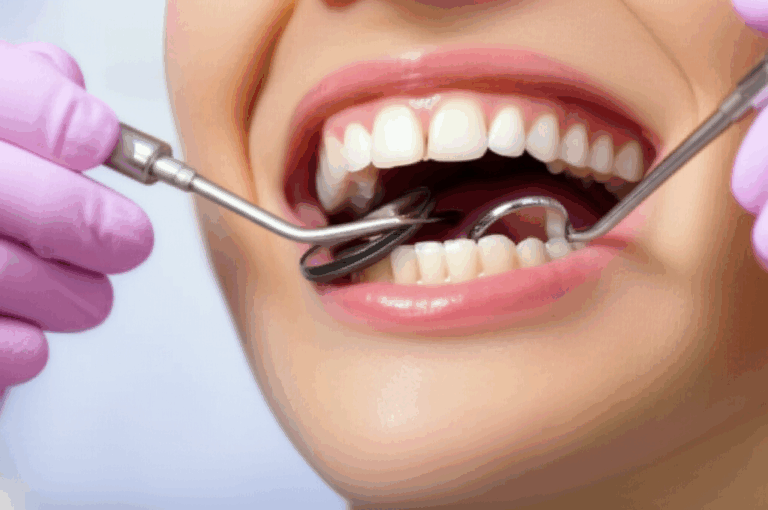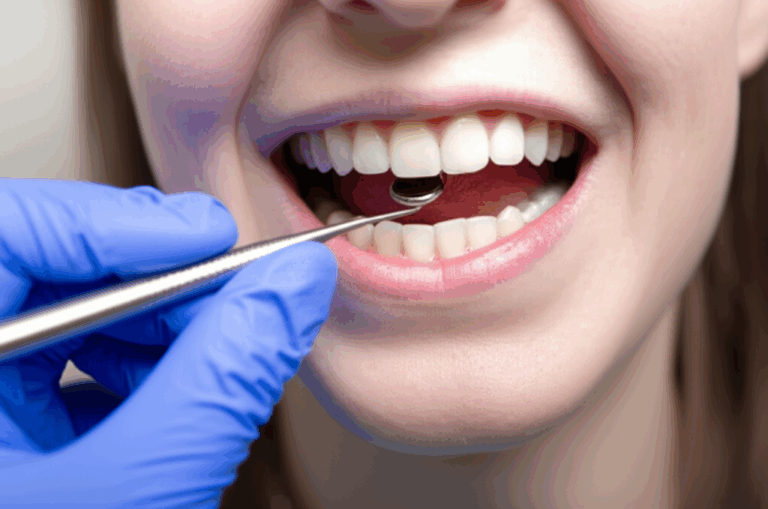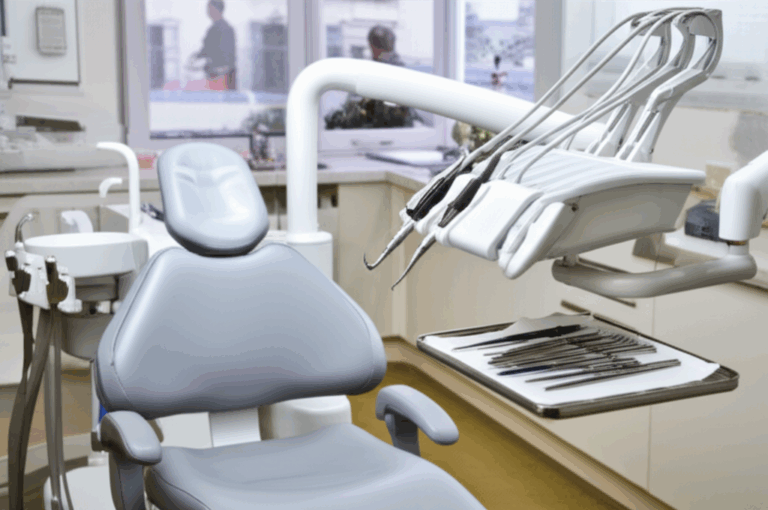
Does Medicare Cover Dentists? My Complete Guide to Dental Coverage After 65
Table of Contents
- What’s Actually Included in Original Medicare Parts A & B?
- The Shocking Gaps I Discovered
- What Medically Necessary Really Means
- Understanding Medicare Part C From My Perspective
- What Type of Dental Care Can You Get?
- Networks, Costs, and Annual Maximums Explained
- Common Misunderstandings
- My Lessons Learned
- Stand-Alone Dental Insurance
- Dental Discount Plans
- Medicaid, VA, and State Programs
- Low-Cost and Community Care
- Cleanings, Exams, Fillings, and Dentures
- Implants, Crowns, Bridges, and Gum Care
- Dental Emergencies and Special Procedures
- Assessing Your True Needs
- Comparing the Fine Details
- Understanding Out-of-Pocket Costs
1. Introduction: My Journey Into Medicare and the Dentist’s Chair
Let me tell you—trying to figure out Medicare as I got close to retirement really surprised me. I knew Medicare would pay for some hospital and doctor bills, but I thought it would cover my teeth too. I mean, isn’t your mouth just as important? I found out fast: Medicare doesn’t pay for regular dental care. Not for cleanings, not for fillings, and not for dentures.
If that’s confusing, you’re not the only one. I went through it myself, paid out of pocket for dentist visits, and spent a lot of time going through pamphlets and online groups. That’s why I want to share what I learned—so you won’t be shocked when it’s time to look after your teeth.
2. First Things First: Does Original Medicare Cover Dentistry?
What’s Actually Included in Original Medicare Parts A & B?
When I first got Medicare, I signed up for what’s called Original Medicare—Part A is for hospitals, and Part B is for doctor visits. What I found is, “dentist” barely comes up in these.
Part A (Hospital Insurance) only pays for dental stuff if it’s part of a covered hospital stay. Part B (Medical Insurance) doesn’t help with fillings, cleanings, or regular checkups. Not even a little.
The Shocking Gaps I Discovered
If you need a root canal, your six-month cleaning, or even a new set of dentures, Original Medicare won’t help. When I got my first dentist bill after turning 65, I had to pay the whole thing. I thought: “Wait, is there a trick?” But the trick is, unless dental work maps directly to a covered medical treatment, you pay yourself.
What Medically Necessary Really Means
I did find one small lifeline: If you end up in the hospital and a dentist has to work on your teeth before another big surgery—like a heart operation or jaw surgery—Medicare Part A might pay for that. But this doesn’t mean it pays for things like fillings or dentures. In my time, these situations almost never come up for regular folks.
Key Point:
Original Medicare won’t pay for normal dentist visits. Dentures, cleanings, pulling teeth, crowns—you pay yourself, unless your dental need is tied to a covered health event.
3. Stepping Up: How Medicare Advantage Plans Change the Game
Understanding Medicare Part C From My Perspective
After I was shocked by the cost, I started looking into Medicare Advantage, or Medicare Part C. These are run by private companies but approved by Medicare. The main thing? They can toss in more benefits—like dental, vision, and hearing.
I checked with Dr. Joe Dental, a dentist who sees lots of Medicare folks. He confirmed what I found: “If you want basic dental covered, a Medicare Advantage plan is your main choice.”
What Type of Dental Care Can You Get?
From what I’ve seen (and signed up for myself), most Medicare Advantage plans offer two kinds of dental help:
- Preventive Dental:
This means they’ll pay for exams, cleanings, bitewing X-rays, and sometimes fluoride once or twice a year.
- Comprehensive Dental:
Some plans help pay for fillings, root canals, pulling teeth, dentures, crowns, bridges, and even work for gum disease.
But you have to check the fine print. When I compared plans, I saw that the amounts, things covered, and yearly money limits change from plan to plan. Some only pay $1,000 a year. Some go up to $2,000 or more, but it’s never “unlimited.”
Networks, Costs, and Annual Maximums Explained
Here’s what I learned:
- Network Rules:
Most plans want you to see their dentists. If you want your own dentist, check they’re on the plan. I switched once and couldn’t see my regular dentist anymore—not fun.
- Copays and Deductibles:
Even with dental, you’ll usually have a flat fee for each visit and might have to pay a set amount before benefits kick in.
- Annual Limits:
If your dental bills go over the plan’s yearly limit, you’re back to paying the rest.
My advice? Read the summary of benefits. Then read it again.
Quick Example:
One plan I looked at paid for two cleanings and X-rays yearly with no deductible; another gave $2,000 for all dental, but made me pay 50% for crowns and bridges. Options are nice, but also tricky to understand.
Insider Tip:
Need big tooth fixes or dentures? Double check the rules. Not every Medicare Advantage plan pays for these, or they might make you wait a while.
4. Why Medigap Doesn’t Solve the Dental Dilemma
Common Misunderstandings
After I saw that Original Medicare leaves out dental, I wondered, “Will a Medigap plan help?” Medigap is extra insurance to help pay for costs Medicare doesn’t cover at the hospital or doctor.
But here’s the thing:
Medigap doesn’t add new stuff. No matter how fancy your Medigap plan, it won’t pay the dentist. I learned this first-hand after a salesman told me, “Medigap helps you avoid big hospital bills, but not dental costs.”
My Lessons Learned
Don’t expect Medigap to pay for dental, or for vision and hearing either. You’ll need to get a separate dental plan or look for something else.
5. Finding Alternatives When Medicare Isn’t Enough
So, what if Medicare Advantage isn’t for you or you need more help? I’ve looked at and tried a few different things:
Stand-Alone Dental Insurance
You can get dental insurance straight from a private company. These plans are just like regular dental insurance—some pay for cleanings and fillings, some help with bigger stuff too. Monthly cost, deductibles, waiting times, and which dentist you can see are all different with each plan. It’s about $20–$60 per month in most cases.
I found some plans make you wait months for big procedures. Don’t expect to get everything covered right away.
Dental Discount Plans
I tested a dental discount plan one year. Instead of insurance, you pay a yearly fee—usually under $150—and get big savings with certain dentists. No deductibles or yearly caps. But you still pay for everything—just at maybe 10-60% off.
Ask your dentist if they have any deal plans like this.
Medicaid, VA, and State Programs
- Medicaid:
If you have a low income, some states let adults get dental through Medicaid. Places like California and New York do more than others, but many states barely help. It changes a lot, so check your state.
- Veterans Affairs (VA) Dental Benefits:
The VA gives some dental to veterans, but it’s strict (like if you’re 100% disabled from service). If you served, it’s worth checking if you qualify.
- State-Funded Programs:
A few states have special dental help for seniors. It changes a lot, so call your local aging department to see what’s out there.
Low-Cost and Community Care
If you’re okay with students, dental schools offer care at cheaper rates. Community clinics sometimes charge based on what you can pay. When I volunteered at a clinic, I saw lots of seniors using these for checkups and even dentures.
6. What Dental Services Matter Most to Seniors—And Will Medicare Pay?
Let’s look at things seniors usually need, and if Medicare covers them:
- Cleanings, Exams, and X-rays:
Only covered by Medicare Advantage plans with dental. Original Medicare says no.
- Fillings, Root Canals, Extractions:
Again, just Medicare Advantage may help. Otherwise, you pay it all.
- Dentures, Crowns, Bridges, Implants:
Most Medicare Advantage dental plans pay for dentures up to the yearly limit. Crowns, bridges, and dental implants might be included, but you’ll pay part of the cost and there are yearly limits. Implants are almost never fully paid for—most plans help a little.
It’s smart to work with good labs when you need big dental work, such as a crown and bridge lab or a removable denture lab, just make sure you ask about the cost up front.
- Gum Disease, Periodontal Treatment:
Some Advantage plans pay, if they say “comprehensive” dental—but not Original Medicare. Getting your gums fixed can be costly if you have to pay yourself.
- Dental Emergencies:
Original Medicare only covers emergency dental if it’s tied directly to a health problem—like if you need your teeth fixed before a big surgery. Otherwise, you pay yourself.
It’s like going down a narrow, twisty road: Mess up and you can get a surprise bill.
7. Making the Best Dental Choices on Medicare: My Advice
After lots of time looking at plans, talking to dentists like Dr. Joe, and checking costs with other retired folks, here’s what works for me:
Assessing Your True Needs
Start by thinking about your own dental history. Do you just get your teeth cleaned every year, or do you need crowns, implants, and bridges? The more you need, the more you should look for a plan with better dental.
Comparing the Fine Details
When I looked at Medicare Advantage plans, I checked:
- Monthly cost
- Deductibles
- Max out-of-pocket cost
- Which dentists you can see
- If the plan pays for what I need most
If you’re planning on big things like dentures or bridges, look for plans that team up with a digital dental lab or zirconia lab for advanced work.
Understanding Out-of-Pocket Costs
Don’t just look at monthly cost. Add up all the copays, deductibles, how much the plan pays each year, and any waiting times. After a year on Medicare Advantage, I found dental wasn’t as “extra” as the ads made it look—especially for dentures.
Asking for Advice
Use every local resource you can. Senior centers, state aging offices, and friendly dentists can help point you to the best plans or savings programs.
8. The Big Picture: Protecting Your Smile and Budget
What I’ve learned is that keeping your teeth healthy at 70 matters just as much as it did at 30, maybe more! Bad teeth and gums can mess with your heart, diabetes, and make life hard. The problem? Medicare’s dental game still needs work.
Here’s what keeps me going:
- I get regular checkups, even if I pay myself.
- I look for other places to get cheap or free care, like clinics.
- I double-check my Medicare Advantage dental every fall during open enrollment.
- I save some money for surprise dental bills.
If you’re ready and know your choices, you can avoid bad surprises and keep your teeth working for you.
9. Frequently Asked Questions: Quick Answers Based on My Experience
Does Original Medicare cover any dental care?
No, not unless your dental work is tied to a big medical event.
Can Medicare Advantage cover dental?
Yes—most plans offer dental, but it’s different in every plan. Most pay for cleanings and exams. Some also help with bigger jobs like crowns and dentures.
Are there yearly limits on dental benefits?
Almost always. Most plans pay $1,000–$2,000 per year.
What if I need big dental work, like dentures or implants?
Check your Medicare Advantage paperwork carefully. Many plans make you pay part (like 50%) and only pay up to their yearly maximum.
Are dental discount plans worth it for seniors?
If you need a lot done and like knowing your prices, they can be a cheaper option, especially if you don’t like any insurance plan you see.
10. Conclusion: Looking After Your Teeth—and Your Future
Here’s the simple truth I’ve learned: Medicare, right now, doesn’t just cover your teeth. You have to pay attention—whether you shop for a Medicare Advantage plan with strong dental, buy your own insurance, or work with a trusted china dental lab for big jobs.
Planning ahead is key. Look at your dental needs, shop each year, and ask for help from local pros. Your teeth need just as much care as everything else.
You might get a few surprises or bumps—but you can handle your dental health in retirement if you plan. Don’t wait until you get a toothache. Take care of your smile and your wallet—both will thank you.








